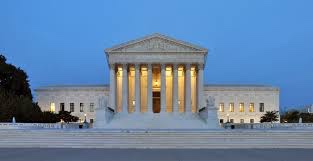In accordance with Donald Trump’s campaign promises, the president nominated Neil Gorsuch to fill the vacancy on the supreme court left by the unexpected death of Antonin Scalia almost a year ago. Gorsuch, 49, is a graduate from Columbia, Harvard, and Oxford, has clerked for two justices of the supreme court and since 2006 has served on the 10th circuit Court of Appeals in Colorado. While many liberals are intending on digging their heels in on his hearings, if confirmed he will not upset the said “balance” of the Supreme Court with five conservative leaning justices and four liberal leaning justices. Many are more concerned at the prospect of President Trump filling a vacancy that could be left by Justice Ruth Bader Ginsburg or Justice Anthony Kennedy in the coming years. If that were to happen, the supposed balance that has become precedent in recent years on the Supreme Court could be completely shifted to have total conservative dominance. If this were to come to fruition, the new balance of power could threaten decisions like Roe v. Wade.
On orders from the Senate majority leader in 2016, congressional republicans made it their goal to stall any and all hopes of Merrick Garland, former President Obama’s nominee to fill the vacancy left by Scalia, from getting even a confirmation hearing. The issue then became a go-to topic in any of the stump speeches given by the Trump campaign during the fall election season. The campaign used the issue to urge any republican voter with precautions toward Trump to still vote for a republican party since they would be the only ones to uphold the legacy of Antonin Scalia in the Supreme Court. The republicans are now urging the democrats to confirm Gorsuch despite the fact that the republicans were less than willing to cooperate with President Obama with his nominee for the seat.
Since Gorsuch is quite young, at only 49 years old, so he could possibly set the tone for the court for a generation of decisions to come. Maybe not for the “50 years” that President Trump remarked in his announcement of Gorsuch, but for a long time nonetheless. While he was raised in the west, which if he were confirmed would bring some geological diversity to the Supreme Court, Gorsuch lived in Washington D.C. during his teenage years since his mother was appointed by Reagan to head the Environmental Protection Agency.
Staunch socially conservative republicans, and even liberals for that matter, have high praise for Gorsuch, even if it may be for different reasons. Many in the judicial community praise him for being a good listener, and for not skewing the facts to adhere to his own opinion when that may be in his best interest.
Melissa Hart, a constitutional law professor at University of Colorado Boulder, said “I do think he’s a relatively good choice. Any nominee put forward by this president is going to have views that concern liberal groups. And therefore, that, relatively, is important. He’s a conservative judge, certainly. But he’s a conservative judge and a very decent man.”
Another praise in the legal community is that Judge Gorsuch’s writing is on par with that of the later Justice Scalia, his opinions are “exceptionally clear” the SCOTUSblog, a leader in Supreme Court news, wrote.
On the national level, Judge Gorsuch is known for such decisions like in the case of Hobby Lobby Stores, Inc. v. Sebelius, in which he ruled in favor of Hobby Lobby and their religious freedom. The case involved the Department of Health and Human Services and for-profit secular companies, stating that the companies were required to provide contraceptive coverage in their employee benefit packages. Gorsuch sided with the companies, and more broadly for religious freedom, stating that “All of us face the problem of complicity. All of us must answer for ourselves whether and to what degree we are willing to be involved in the wrongdoing of others. For some, religion provides an essential source of guidance both about what constitutes wrongful conduct and the degree to which those who assist others in committing wrongful conduct themselves bear moral culpability.” This essentially means that he believed that companies should be allowed to challenge the Department of Health and Human Services ruling on employee health benefit packages based on religious views. The case went all the way through the justice system to the Supreme Court and in a 5-4 decision siding with Hobby Lobby, the court shared the Opinion of Judge Gorsuch.
If the Democrats decide to filibuster Gorsuch’s nomination, that means he would need 60 votes in the senate to be confirmed. Currently the republicans hold 52 seats in the senate.
